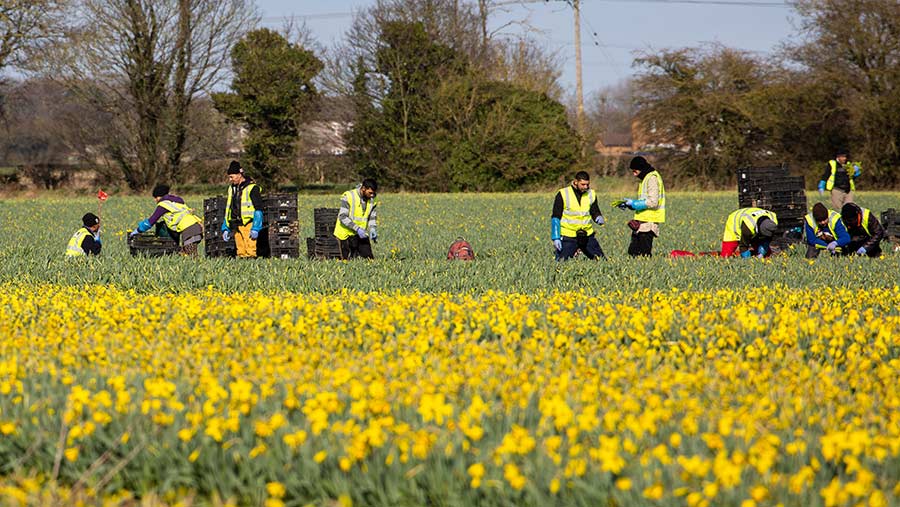NFU survey highlights limitations of relying on UK workers
 © Geoff Robinson/Shutterstock
© Geoff Robinson/Shutterstock The NFU has urged the government to provide immediate clarity on how fruit, veg and flower businesses will be able to recruit seasonal workers next year.
The call comes after the union’s Horticulture Seasonal Worker Survey 2020 found that, despite the widely publicised Pick for Britain campaign, UK residents made up only 11% of the workforce this year.
NFU vice-president Tom Bradshaw said it was a “critical time” in recruitment for many growers, who face uncertainty about their labour for harvest next year.
See also: Defra launches Pick for Britain website
“As freedom of movement ends on 31 December, those growers of iconic British daffodils, asparagus and soft fruits still don’t know where they will recruit experienced workers from.
“Workers from outside the UK are absolutely vital to the success of our horticultural sector, and we have ambitions to grow more fruit and veg at home.
“But this success story continues to be undermined by a consistent shortfall in workers over the past four years and rising costs. It creates an unsustainable situation for growers and puts the resilience of domestic food at risk,” Mr Bradshaw said.
Survey findings
The NFU’s survey showed that first-time UK resident workers stayed on a farm for nine and a half weeks on average, compared to just over 14 weeks for first-time, non-UK workers, and 18 weeks for returning non-UK workers.
Mr Bradshaw added: “Understandably, these workers continued to look for work closer to home, meaning many left farms part way through their contract and leaving growers having to re-recruit, which impacted on overall productivity levels and increased production costs.”
The NFU’s Horticulture Seasonal Worker Survey 2020 was completed by 244 horticultural growers, recruiting more than 30,000 people. This equates to just under 50% of the workforce.
A government spokesperson said: “Now the UK has left the EU, Defra is working closely with the Home Office and other government departments to ensure that there is a long-term strategy for the food and farming workforce.”
